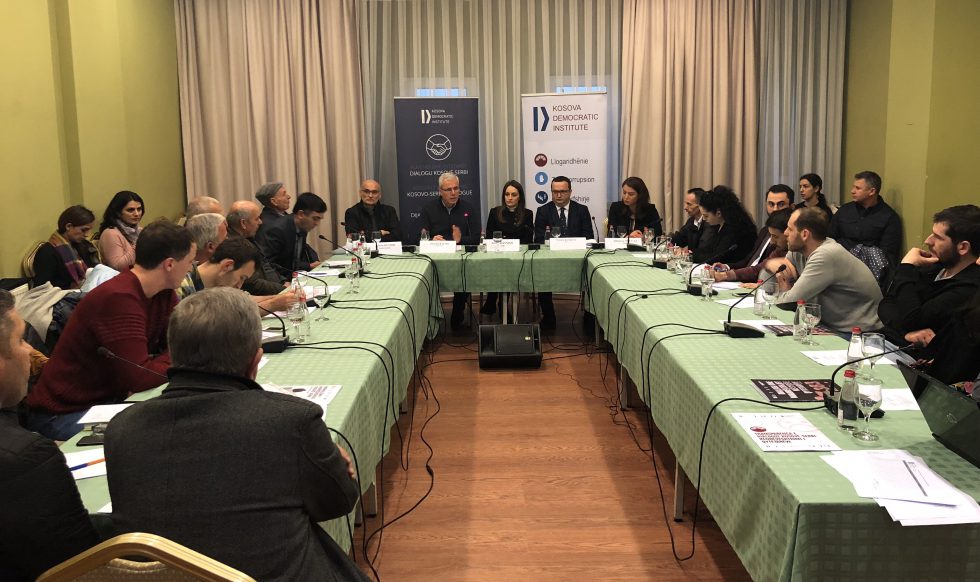


Kosovo Democratic Institute (KDI), today organized a round table in Ferizaj with the topic “Kosovo-Serbia Dialogue: Citizens Perception of the Ferizaj Region”.
Part of this discussion was the deputy of the Kosovo Assembly, Sami Kurteshi, Medain Hashani, representative from PDK, Albulena Nrecaj from the organization INPO and journalist Afrim Demiri and citizens of this region who debated the impact that Kosovo-Serbia dialogue has had in the lives of the citizens of this region as well as their expectations from the new phase of dialogue.
On this occasion, Jeta Krasniqi from KDI, emphasized that the goal of KDI is to increase the transparency of the dialogue process. “In order to increase the transparency and involvement of citizens in the process, KDI has organized regular meetings with MPs, citizens, media, civil society and the academy in all regions of Kosovo. These meetings also aimed at informing citizens about the agreements reached that affect citizens’ lives. In this way, KDI has demanded that the voice of citizens be heard so that their demands be integrated in the next stage of the dialogue, “she said.
MP of Vetevendosje, Sami Kurteshi emphasized that dialogue was a non-transparent process, not only to citizens but also to the Assembly of Kosovo. The government, according to him, has consistently disregarded the Assembly and avoided internal discussions about this process. He added that it is important to have a bottom-up dialogue and to specify the basic principles of the discussion.
While Medain Hashani from PDK has said that dialogue with Serbia is a condition of the international community that Kosovo must complete. He stressed that despite some of the negative aspects that dialogue could have brought, he has brought many good things, such as judicial functionality and police action throughout Kosovo, and placement of customs officers at the border crossing points in Jarinje and Bernjak. He added that in the next phase of the dialogue they will seek to discuss the topics of dealing with the past, war damages, and will require the EU to force Serbia to pay for war damages. He also added that PDK is opposed to ideas for separating, exchanging territories or autonomy of Serbs in Kosovo.
Meanwhile, INPO’s executive director Albulena Nrecaj emphasized that it is important to first clarify the status of the agreements reached so far, before moving on to the new phase of the dialogue. She stressed that the lack of transparency and accountability have been and remain the major concerns of civil society regarding the dialogue.
Afrim Demiri, a journalist and analyst of political developments, stressed that Brussels’ dialogue is a continuation of ongoing talks between Kosovo and Serbia since the 1990s. He added that while in the efforts for freedom, society and leadership of Kosovo have been united, this has not happened during the process of statehood. Further, Demiri has stressed that it is necessary to have consensus among the political spectrum so that in the dialogue we will be unified.
The citizens of the Ferizaj region expressed dissatisfaction with the lack of transparency and behavior of political parties and political leadership. They demanded that there be consensus on the political scene in order to go to dialogue united and prepared. They also demanded that the dialogue should not be used as a means of coming to power but to be treated as a vital issue about which we should be united.
They also called for the Assembly to adopt a resolution mandating the president to dialogue and to discuss the issue of missing, raped women and other war damages.
This discussion was organized in the framework of the Memorandum of Understanding signed between KDI and the Assembly aimed at increasing the participation of citizens in the framework of the Kosovo-Serbia dialogue and strengthening the Assembly’s oversight role towards the Government, with the financing of the Swiss Embassy in Kosovo.